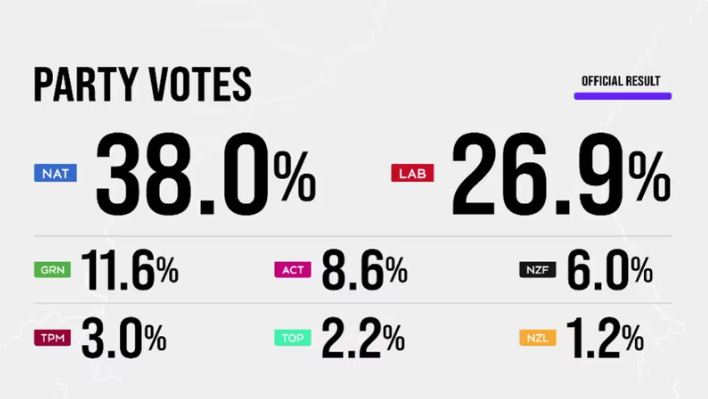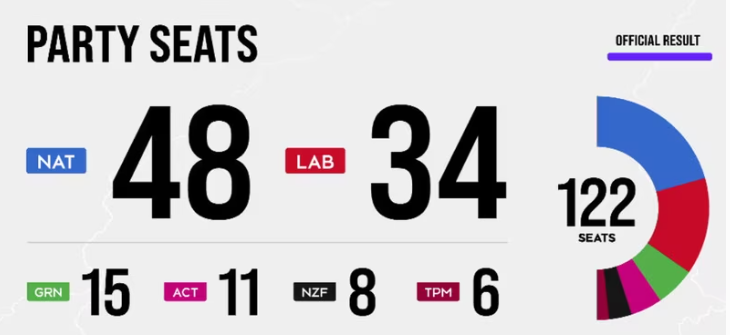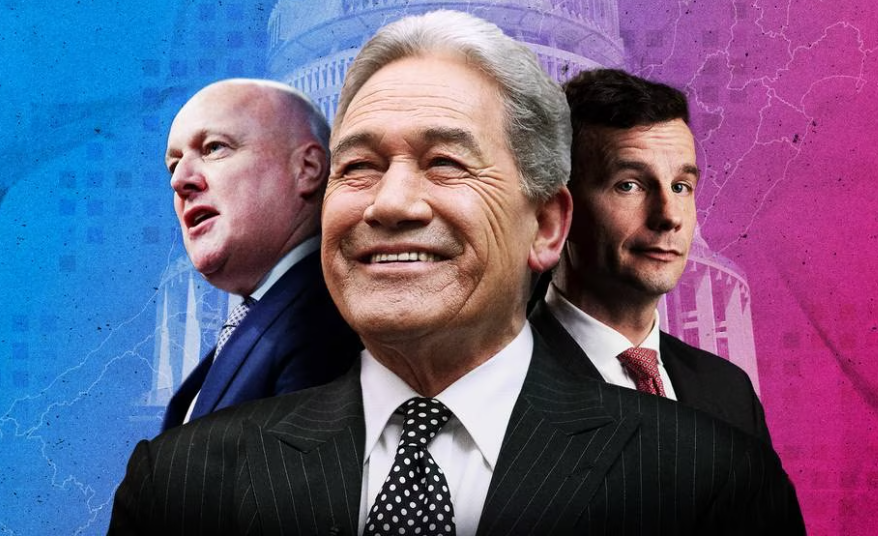New Zealand First and leader Winston Peters holds significant influence in shaping the composition of the next NZ Government. This follows the release of the final election results today, revealing that the National Party lost two seats. In the wake of the special votes count, Christopher Luxon, and Act leader David Seymour find themselves in a situation where they must establish a three-party coalition with New Zealand First to form the upcoming government.
The combined seat tally for National and ACT now stands at 59 seats, making them dependent on the eight seats held by New Zealand First. During an interview, Winston Peters underscored the importance of conducting negotiations with a sense of urgency while maintaining a prudent approach. He recognized that all three parties would need to make concessions to ensure a smooth and effective negotiation process.
In his own words, Peters remarked, “What can we agree on? We can’t all attain all our desires; we must collaborate to establish a much more efficient government.” Winston Peters also disclosed that he had a conversation with the National Party leader shortly after the election results were made public at 2 pm. Reflecting on the campaign period, where he and ACT leader David Seymour often found themselves at odds, Peters emphasized the need to put aside their differences, highlighting the inherent nature of such compromises in politics.
Peters stressed that the top priority for the three involved parties is to convene in the same room for negotiations, rather than conducting separate discussions. He emphasized his wealth of experience in negotiations, stating, “This is not my first negotiation; I’m only negotiating with one side, so to speak, not two, and that’s why we can expedite this.”
In terms of logistics, he proposed that negotiations be facilitated through the chiefs of staff to minimize the time spent on travel. Peters noted, “Frankly, if our chiefs of staff gathered in one room, it’s a logistical matter. We still need to carry on with our other work,” underscoring the importance of efficiency in the negotiation process.
The special votes, which have historically leaned toward the left, led to the National Party losing two seats, reducing their count from 50 to 48, while the Green Party secured an additional seat, increasing their total to 15.

Furthermore, Te Pāti Māori has made significant gains by winning two additional Māori electorate seats, both of which were previously held by Labour’s Peeni Henare and Kelvin Davis.




